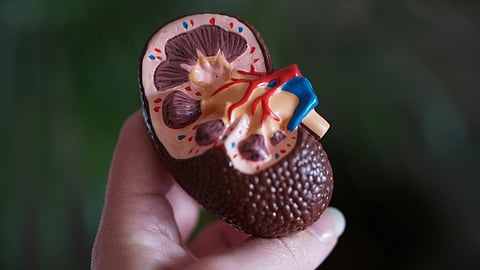Dr Anil Sharma, senior consultant and head of urology at Amrita Hospital, led the complex surgery which lasted for four hours, on January 9, 2025. The operation was successful, restoring his ability to excrete wastes through urine. The patient no longer needs to depend on dialysis, as he was discharged after 10 days, noting no possible signs of body rejecting the transplanted kidney.
What all risks were there?
The prolonged chronic kidney illness, previous failed transplants, and numerous other factors contributed to the chance of increased transplant rejection. The surgical procedure also involved the usage of immunosuppresive agents, which are drugs that prevent your immune system from attacking healthy cells and tissues by mistake. These medications also increased the risk of infection since the immune system isn’t working as it should.[1] Besides that, an existing incisional hernia added to the difficulty.
References
1. Professional, Cleveland Clinic Medical. “Immunosuppressants.” Cleveland Clinic. Accessed on February 22, 2025. https://my.clevelandclinic.org/health/treatments/10418-immunosuppressants.
(Input from various sources)
(Rehash/Jithin Paul/MSM)


